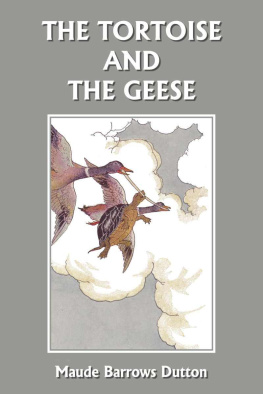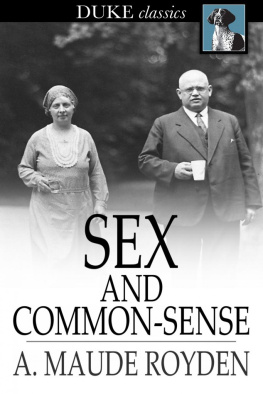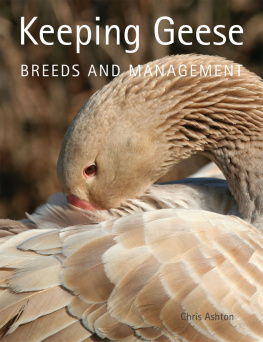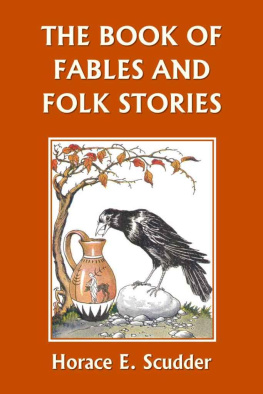Maude Barrows Dutton - The Tortoise and the Geese and Other Fables of Bidpai
Here you can read online Maude Barrows Dutton - The Tortoise and the Geese and Other Fables of Bidpai full text of the book (entire story) in english for free. Download pdf and epub, get meaning, cover and reviews about this ebook. year: 2008, publisher: Yesterdays Classics, genre: Art. Description of the work, (preface) as well as reviews are available. Best literature library LitArk.com created for fans of good reading and offers a wide selection of genres:
Romance novel
Science fiction
Adventure
Detective
Science
History
Home and family
Prose
Art
Politics
Computer
Non-fiction
Religion
Business
Children
Humor
Choose a favorite category and find really read worthwhile books. Enjoy immersion in the world of imagination, feel the emotions of the characters or learn something new for yourself, make an fascinating discovery.
- Book:The Tortoise and the Geese and Other Fables of Bidpai
- Author:
- Publisher:Yesterdays Classics
- Genre:
- Year:2008
- Rating:5 / 5
- Favourites:Add to favourites
- Your mark:
- 100
- 1
- 2
- 3
- 4
- 5
The Tortoise and the Geese and Other Fables of Bidpai: summary, description and annotation
We offer to read an annotation, description, summary or preface (depends on what the author of the book "The Tortoise and the Geese and Other Fables of Bidpai" wrote himself). If you haven't found the necessary information about the book — write in the comments, we will try to find it.
The Tortoise and the Geese and Other Fables of Bidpai — read online for free the complete book (whole text) full work
Below is the text of the book, divided by pages. System saving the place of the last page read, allows you to conveniently read the book "The Tortoise and the Geese and Other Fables of Bidpai" online for free, without having to search again every time where you left off. Put a bookmark, and you can go to the page where you finished reading at any time.
Font size:
Interval:
Bookmark:
All rights reserved. No part of this book may be reproduced or retransmitted in any form or by any means without the written permission of the publisher.
This edition, first published in 2010 by Yesterday's Classics, an imprint of Yesterday's Classics, LLC, is an unabridged republication of the work originally published by Houghton Mifflin Company in 1908. This title is available in a print edition (ISBN 978-1-59915-249-3).
Yesterday's Classics republishes classic books for children from the golden age of children's literature, the era from 1880 to 1920. Many of our titles are offered in high-quality paperback editions, with text cast in modern easy-to-read type for today's readers. The illustrations from the original volumes are included except in those few cases where the quality of the original images is too low to make their reproduction feasible. Unless specified otherwise, color illustrations in the original volumes are rendered in black and white in our print editions.
The Fables of Bidpai are an Eastern heritage from the centuries antedating the birth of Christ, and like all the works of early literature, they have come down to us out of obscure origins, enshrouded in traditions. History forbears even to certify that the reputed author of these tales existed, but tradition has inscribed him as a sage of India, who lived about the year 300 B. C. More than this, she records him as the bravest of all the philosophers of his generation, standing silent before King Dabschlim. He was led into the august presence of his Majesty by the sincere desire to bring wisdom to a foolish ruler. The royal personage scanned his face and bade him break his silence. Bidpai fearlessly performed his task, reaping as his reward a prison cell and fettered hands. Here he lay forgotten until one day the King, tormented by some unusual problem, bethought himself of the sage. Summoning him from his dungeon, he once again bade him share his wisdom with him. The reward this time was an elevation as high as his degradation had been low. He was given the kingdom to rule.
An era of great prosperity now set in for Dabschlim, darkened only by the thought of the briefness of mortal life. Wonted to look to Bidpai for the solution of all difficulties, he turned to him now, beseeching him to write down his words of wisdom and leave them as a lasting monument to him, Dabschlim. Thus it was that the sage, providing himself with food and parchment ample for a year, retired with one disciple into a closed room in the far part of the palace. At the end of twelve months the philosopher and his scribe issued, pale-faced, from their retreat; a great assemblage of the savants of the Empire was called; and standing in their midst facing Dabschlim, Bidpai read his fables, in which he had ingeniously inculcated all his moral wisdom. The King's delight was boundless. He told Bidpai to ask what he wished and it should be granted him. The sage requested only that the book should be carefully guarded in India, and the greatest precaution taken that it should not fall into the hands of the Persians.
All lovers of classics cannot but be glad that in spite of Bidpai's request the Book of Fables was eventually borne out of the Indian treasure house. A Persian physician, traveling in India in search of herbs whose sap should impart life again to the dead, returned to his native land with Bidpai's Fables. He set about translating them into Pehlevi, the language of Persia at that time. Their migration had begun. Starting in Sanscrit, they have passed into Pehlevi, Arabic, Persian, Greek, Latin, Hebrew, and on into the modern tongues, finding their greatest vogue in Europe in the eleventh, twelfth, and thirteenth centuries.
It is rather singular that these fables have been so long treasured by scholars almost exclusively. La Fontaine was quick to seize upon them and incorporate them into his collection of fables, but English-speaking children have been given little opportunity to know them. In this small selection from the Fables of Bidpai only a scant portion of his wisdom and his humor is offered, but it is sincerely hoped that herein lies sufficient to awaken in our children a love for this Indian Sage that shall increase with the years until the name of Bidpai be ranked in their affections close to that of Aesop.
M AUDE B ARROWS D UTTON
N EW Y ORK C ITY.
A TORTOISE and two Geese lived together in a pond for many years. At last there came a drought and dried up the pond. Then the Geese said to one another,
"We must seek a new home quickly, for we cannot live without water. Let us say farewell to the Tortoise and start at once."
When the Tortoise heard that they were going, he trembled with fear, and besought them by their friendship not to desert him.
"Alas," the Geese replied, "there is no help for it. If we stay here, we shall all three die, and we cannot take you with us, for you cannot fly."
Still the Tortoise begged so hard not to be left behind that the Geese finally said,

"Dear Friend, if you will promise not to speak a word on the journey, we will take you with us. But know beforehand, that if you open your mouth to say one single word, you will be in instant danger of losing your life."
"Have no fear," replied the Tortoise, "but that I will be silent until you give me leave to speak again. I would rather never open my mouth again than be left to die alone here in the dried-up pond."
So the Geese brought a stout stick and bade the Tortoise grasp it firmly in the middle by his mouth. Then they took hold of either end and flew off with him. They had gone several miles in safety, when their course lay over a village. As the country people saw this curious sight of a Tortoise being carried by two Geese, they began to laugh and cry out,
"Oh, did you ever see such a funny sight in all your life!" And they laughed loud and long.
The Tortoise grew more and more indignant. At last he could stand their jeering no longer. "You stupid... " he snapped, but before he could say more he had fallen to the ground and was dashed to pieces.
A FOX, who was out in search of food, discovered a Hen scratching for worms at the foot of a tree. He hid himself in a bush near by, and was about to spring out and seize her, when a strange tapping sound fell upon his ears; for in that same tree there was a Drum, and when the wind blew, the branches beat against it.
Now the Fox was exceedingly hungry, and reasoned thus:
"A noise as loud as that must be made by a fowl much larger than this Hen. I will, therefore, let her go, and will bring down that larger bird for my supper."
Without further thought he rushed out of the bush with a noise that put the Hen to flight, and, after many vain efforts, scrambled up the tree. High among the leaves he found the Drum, and fell upon it tooth and claw. He soon had it open, only to see that it was filled with nothing more or less than empty air. The Fox hung his tail.
"What a stupid wretch I am!" he groaned. "Because of my own greediness, I must now go supperless to bed."
Font size:
Interval:
Bookmark:
Similar books «The Tortoise and the Geese and Other Fables of Bidpai»
Look at similar books to The Tortoise and the Geese and Other Fables of Bidpai. We have selected literature similar in name and meaning in the hope of providing readers with more options to find new, interesting, not yet read works.
Discussion, reviews of the book The Tortoise and the Geese and Other Fables of Bidpai and just readers' own opinions. Leave your comments, write what you think about the work, its meaning or the main characters. Specify what exactly you liked and what you didn't like, and why you think so.












